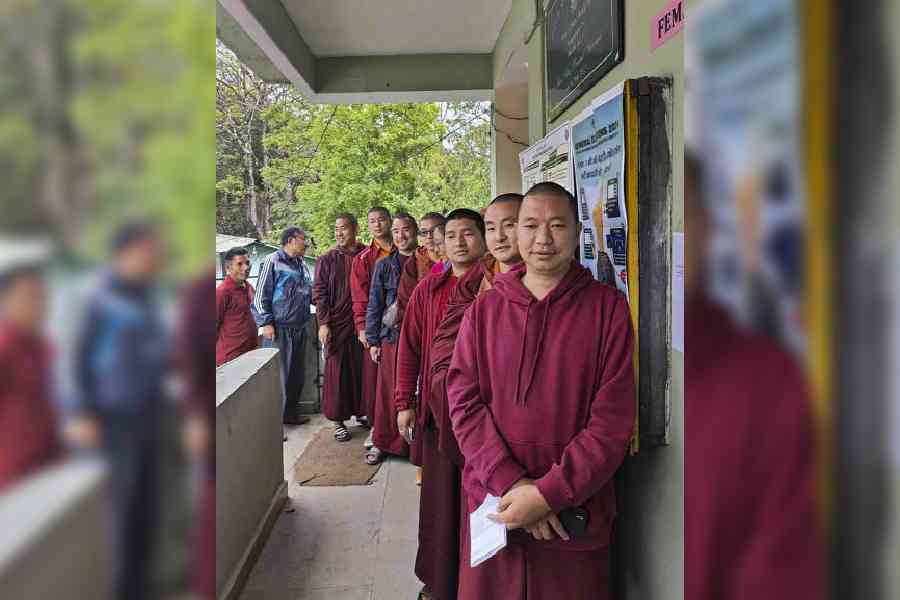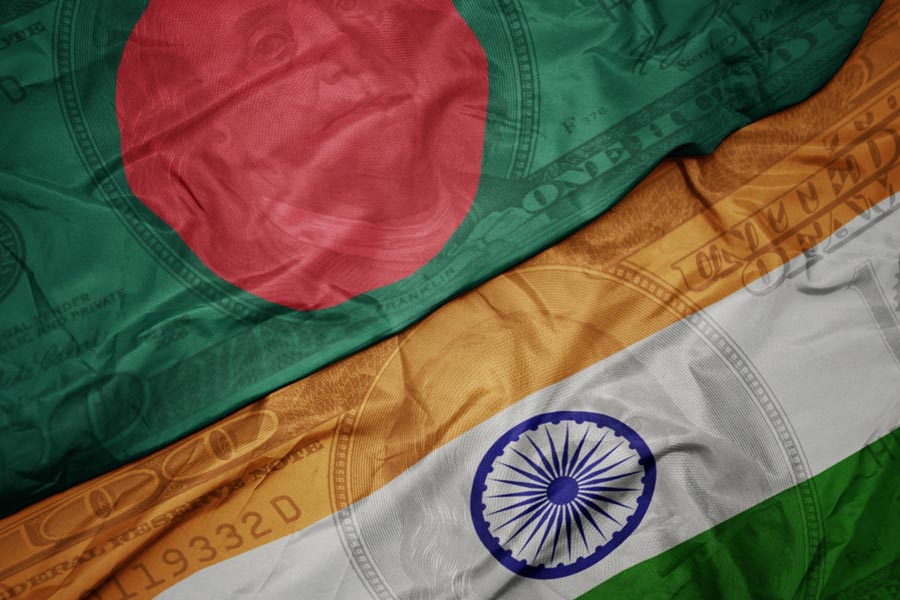When Buddhist monk Ongdi Pintso Bhutia of Thensong monastery in north Sikkim pressed the EVM on Friday to cast his vote, he again reaffirmed Sikkim’s 300-year-old tradition.
Sikkim is the only state in the country with an intangible Assembly seat called Sangha for Buddhist monks and nuns. Unlike 31 other Assembly seats in Sikkim, the Sangha does not have a fixed geographic boundary.
Buddhist monks and nuns of 111 recognised monasteries in the Himalayan state vote for the candidate who must also be a monk or nun.
“Total Sangha voters number 2,881. The Sangha voters exercise their franchise at the same polling station for general voters but are provided with a separate EVM,” said an official.
Elections to the lone Lok Sabha seat and the Assembly were held in Sikkim on Friday.
“The Sangha seat is important for us in the preservation of our culture and tradition that goes back to the days of kings. Whenever I visit other monasteries, I urge the monks to register for the Sangha seat,” said Ongdi Pintso.
In AD 1642, Phuntsog Namgyal was crowned the first Chogyal (temporal and spiritual king) in Sikkim. The Chogyal dynasty ruled Sikkim for 333 years until 1975 when Sikkim merged with India.
During the Chogyal’s reign, the priests were an integral part of the governance. However, with the representations of monks dwindling — some claim that the British were instrumental in diluting the monk representation, the Sikkim king came up with a proclamation in 1958 with a provision for a monastery seat in the Durbar of Sikkim.
When Sikkim became the 22nd state of India on May 16, 1975, the century-old tradition of the involvement of monks in the administration was preserved.
“This is because Sikkim enjoys a special status under Article 371(f) that promises to protect some of the old laws of Sikkim before its merger with the Indian Union,” said an observer in Sikkim.
In the 2024 Sikkim Assembly polls, four monks — Sonam Lama of the Sikkim Krantrikari Morcha, Tseten Tashi Bhutia of the BJP, Tshering Lama of the Sikkim Democratic Front and Norcho Lepcha of the Citizen Action Party — are contesting for the Sangha seat.
Sonam Lama of the SKM is the incumbent Sangha MLA.
Monks admit that politics is intense for the seat. “It is difficult for us to say zindabad and murdabad. I try to avoid such slogans as it does not suit our dharma (religion),” said Ongdi Pintso.
In 1993, a petition was filed before the Supreme Court by Sikkim leader R.C. Poudyal, challenging the constitutional validity of the Sangha seat. The court ruled in favour of the Sangha seat.
The model is, however, attracting another community in south India.
The Kodava community in the Kodagu district of Karnataka is demanding reservation for the community both in the Assembly and the Parliament on lines of the Sangha seat.











